
Every word represents a decision about how certain letters combine to refer to an activity, object, subject, or feeling. As people keep inventing new things, more words and phrases are created to describe them.
24/7 Tempo reviewed several online English dictionaries for word definitions and meanings, including Merriam-Webster and Urban Dictionary, to create a list of 30 frequently used words that didn’t exist 30 years ago. Expressions and words that already existed but had different meanings were excluded — here are 36 popular words we use today but with new meanings.
The digital revolution has changed communication, facilitating it through social media. Our everyday vocabulary now contains many neologisms – newly coined words – expressing ideas we wouldn’t have understood before.
Many words on our non-comprehensive list are blends of two existing words used to describe a new term. Others combine Latin roots. Some were originally nouns but are now more popular as verbs. These are 30 Latin phrases that are still used all the time.
Click here to see 30 words that didn’t exist 30 years ago
To create a list of 30 words that didn’t exist 30 years ago, 24/7 Tempo reviewed several online English dictionaries for word definitions and meanings, including Merriam-Webster and Urban Dictionary. We excluded expressions such as “social media.” Words that existed but had different meanings were also excluded. One example is the term “muggle,” which became popular after it was used by J. K. Rowling in its Harry Potter books. “Muggle” is nowadays used to refer to people who don’t have certain skills, but decades ago it was used as a colloquial term for marijuana.

Hater
> First used circa: 1991
> Meaning: A negative or critical person
“Hater” has been popularized by a 1997 song “Playa Hater” by Notorious B.I.G, but the term had already been around. Hip-hop dictionary The Right Rhymes traces “hater” back to “Psycobetabuckdown,” a 1991 song by Cypress Hill.
[in-text-ad]

Smartphone
> First used circa: 1992
> Meaning: A mobile phone that performs many computer functions
Many people associate the word “smartphone” with the release of the first iPhone in 2007. However, the very first smartphone will turn 29 in November. In 1992, the smartphone, which combined the functions of a regular cell phone and a personal digital assistant (PDA), was called the Simon Personal Communicator and was created by IBM.

Boop
> First used circa: 1992
> Meaning: Affectionately poking someone on the nose and saying “Boop!”
Making the sound “boop” while poking someone on the nose — in a friendly way — has become increasingly popular. The gesture can be traced back to a 1992 episode of the popular TV show “The Simpsons.” The “boop” sound is heard as Bart puts a stamp on his sister’s nose.

Upcycle
> First used circa: 1994
> Meaning: Reusing materials in a way to create a product of higher quality than the original
“Upcycling,” or reusing discarded materials to create new items that are of higher quality or value, has become very popular over the past decade. The term for this type of recycling was first used in a 1994 interview with Thornton Kay about waste disposal systems. Kay said, “What we need is upcycling — where old products are given more value, not less.” The word really took off in 2002, when a book titled “Cradle to Cradle: The Way We Make Things,” a non-fiction about how to reduce waste, reuse materials, and recycle, was published.
[in-text-ad-2]

Wi-Fi
> First used circa: 1997
> Meaning: Wireless network protocols allowing devices to connect to the internet
Wi-Fi, which uses electromagnetic waves to transfer data, was invented in 1997. The creation of Wi-Fi led to the development of a set of standards that define communication for WLANs, or wireless local area networks.

Emoji
> First used circa: 1997
> Meaning: A small digital image used to express an idea or emotion
Apparently, the term “emoji” has nothing to do with the word “emotion.” “Emoji” is derived from the Japanese words for “picture,” which is pronounced “eh,” and “character,” which is pronounced “moji.” The first known emoji was used on a mobile phone in 1997 by J-Phone, currently known as SoftBank.
[in-text-ad]

Cyberbullying
> First used circa: 1998
> Meaning: The use of electronic communication to bully a person
The first documented use of the word “cyberbullying” was in 1998, according to the Merriam-Webster Dictionary. The mainstream media began using the term after it was revealed that online harassment resulted in multiple teen suicides. One of the earliest such examples was in 2007, when 13-year-old Megan Meier hanged herself in her room after neighbors created a fake Myspace profile to harass her.

Blog
> First used circa: 1999
> Meaning: A regularly updated web page that is written in an informal style
The word “blog” is actually short for “weblog.” The word “weblog” is usually attributed to Jorn Barger, a “weblogger” who used it to describe “logging the web” as he browsed the internet. The shortening of the term to “blog” is commonly attributed to Peter Merholz, a programmer.
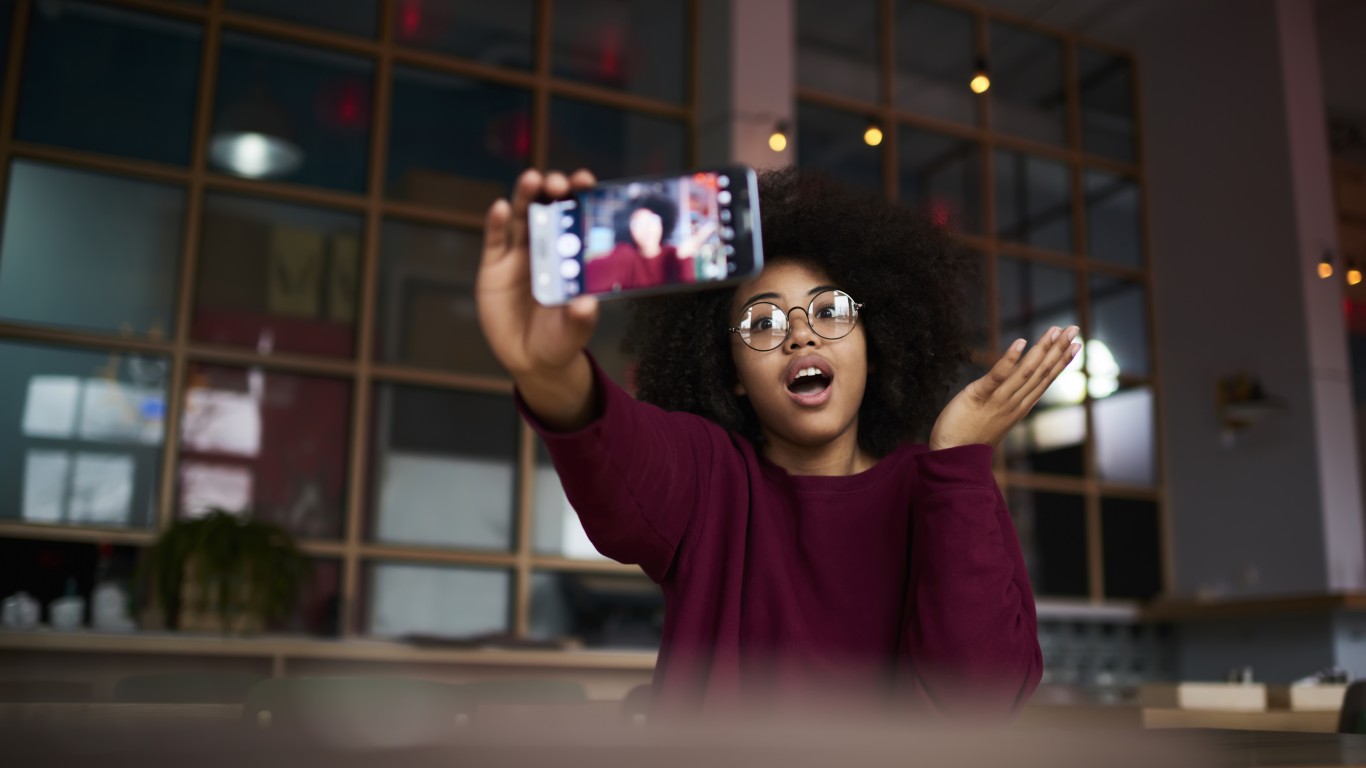
Vlog
> First used circa: 2000
> Meaning: A blog in the form of a video
The first vlog, a blog entry in the form of a video, is credited to a guy named Adam Kontras, who posted it on Jan. 2, 2000. The vlog is about Kontras bringing a cat into a hotel with a “No Pets” policy.
[in-text-ad-2]

FOMO
> First used circa: 2000
> Meaning: Fear or missing out
One theory is that FOMO, or fear of missing out, was created in 2000 as a marketing term by Dan Herman, a marketing strategist. Another theory is that the term was first coined in 2004 by Harvard business student Patrick McGinnis who used FOMO to describe overly ambitious managers. Most online dictionaries agree that McGinnis popularized the term.

Bromance
> First used circa: 2001
> Meaning: A close friendship between men
The first known use of the word “bromance,” a blending of the words bro (brother) and romance, is believed to be around 2001. The term is perhaps the new word to describe “brother from another mother.”
[in-text-ad]

Showmance
> First used circa: 2001
> Meaning: A romantic relationship that develops between cast members
“Showmance” is a neologism for an on- and off-screen relationship between cast members or production crew of a (usually reality) TV show that lasts only throughout the duration of the show. The term was first used by a “Big Brother” contestant in 2001.
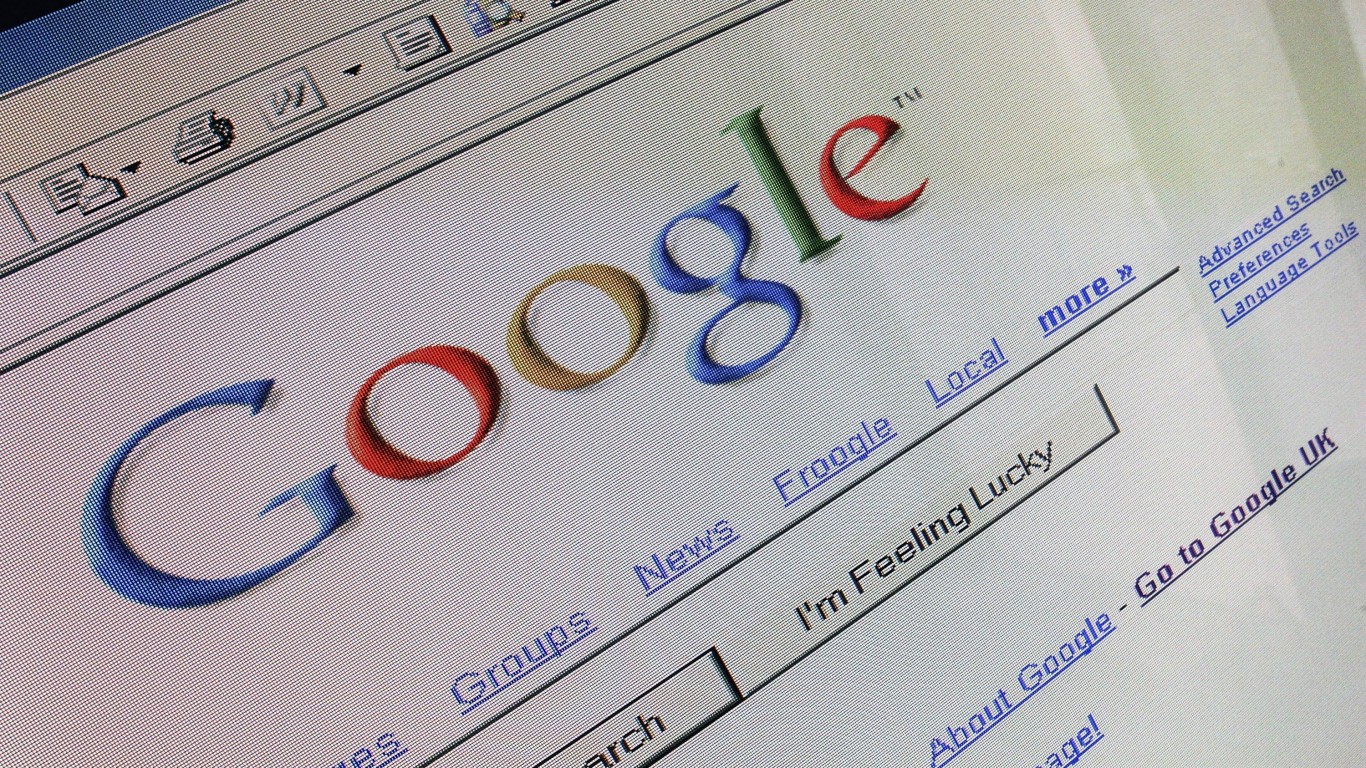
Google
> First used circa: 2002
> Meaning: Searching for information using the search engine Google
The search engine Google was created in 1998 and quickly became the dominant search engine. The word “google” as a transitive verb” was first documented in 2002 in the phrase “Have you googled her yet” on the TV show “Buffy The Vampire Slayer.”

Selfie
> First used circa: 2002
> Meaning: A photograph that one has taken of oneself
Though the first selfie appears to have been taken in 1839, the word “selfie” was not used until 2002. According to Oxford Dictionaries, which declared “selfie” word of the year in 2013, the term was first documented online by a young Australian guy who drunkenly described a self-portrait as “selfie.”
[in-text-ad-2]
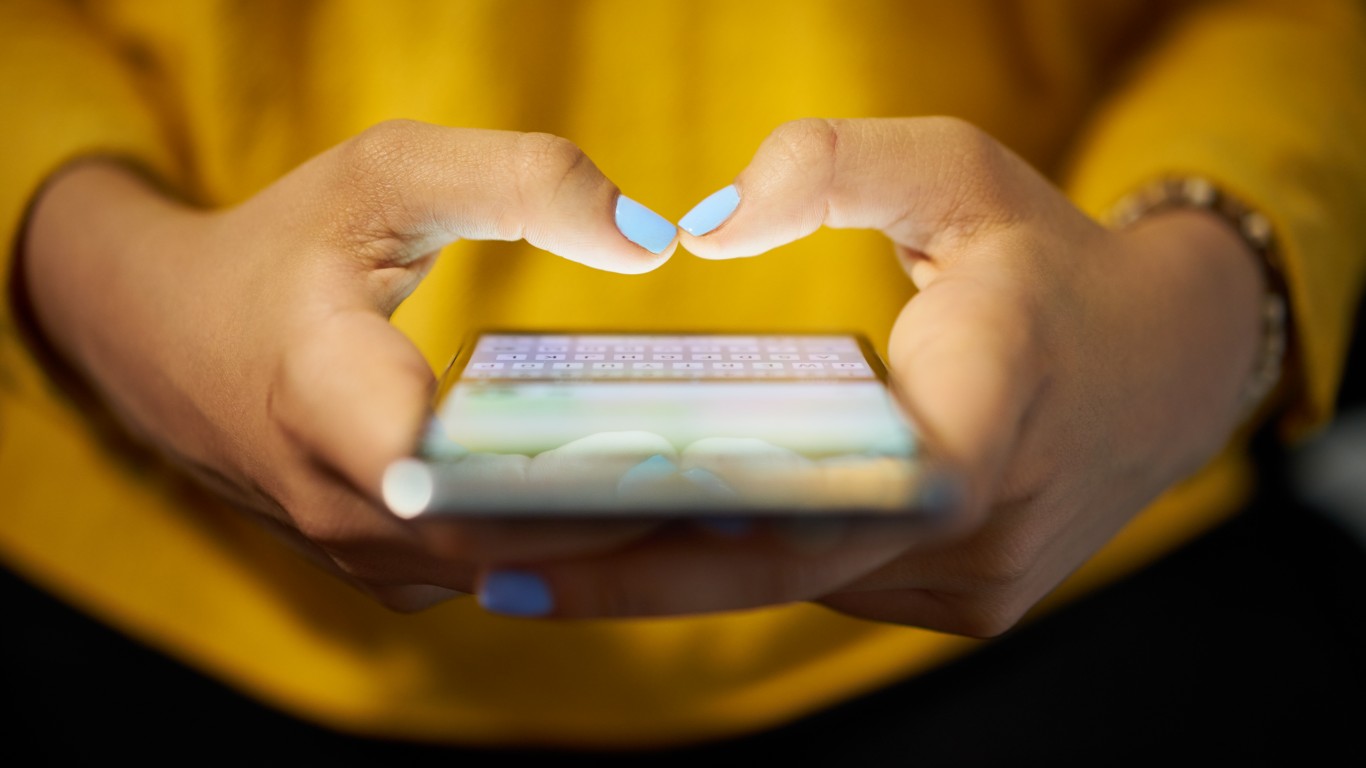
Sеxting
> First used circa: 2004
> Meaning: Sending sеxually explicit photographs or messages via text
In 2004, The Globe and Mail reported on a text messaging scandal involving soccer legend David Beckham, calling it “sеxt messaging.” The term really entered the mainstream when it was used in 2008 by the National Campaign to Prevent Teen and Unplanned Pregnancy and Cosmogirl.com. They reported that one in five teens had been involved in sending naked pictures via text, using the term “sеxt.”
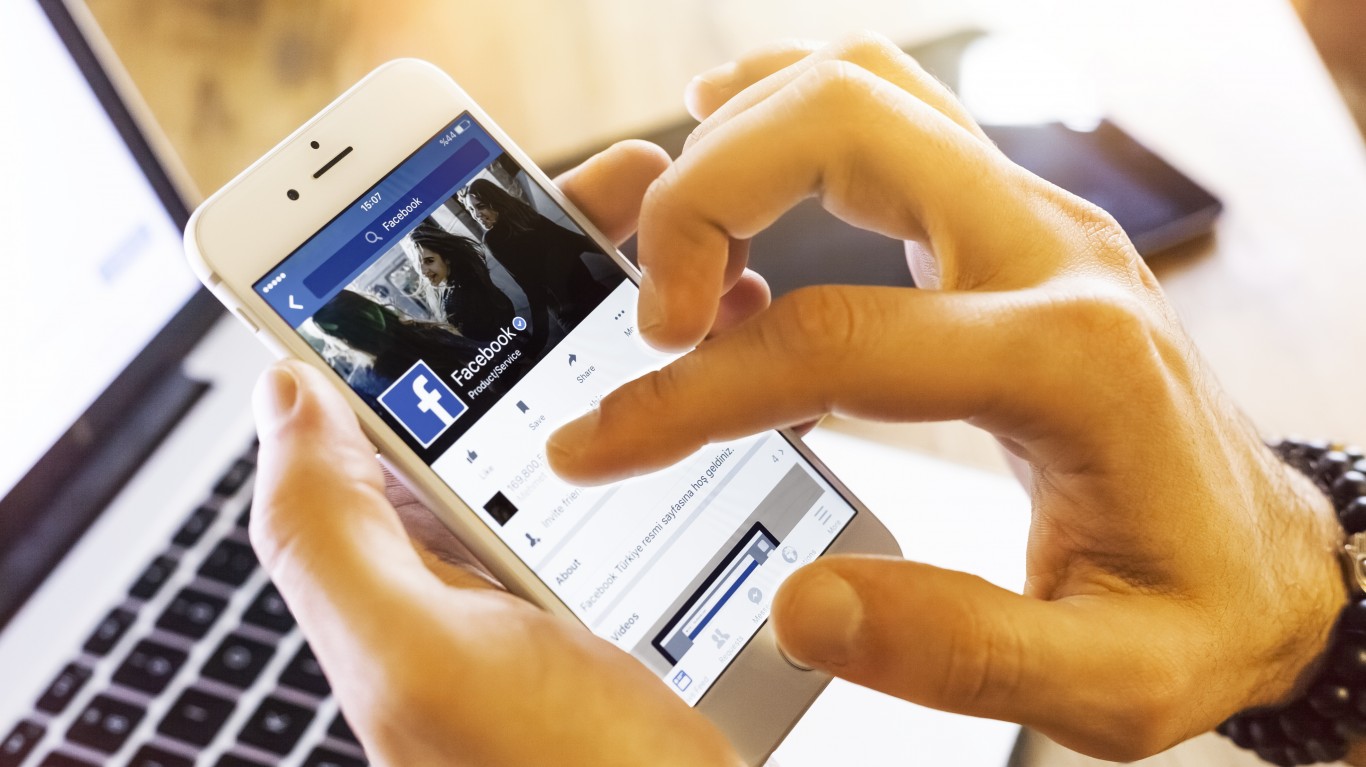
Facebook
> First used circa: 2004
> Meaning: A social network
Facebook was first launched as “Thefacebook” in 2004. As a verb, facebook means to spend time using the social networking website.
[in-text-ad]

Podcast
> First used circa: 2004
> Meaning: A digital audio program available for download
Podcasts stem from what was known as audio blogging in the 1980s. The term “podcast” was first used by Ben Hammersley in The Guardian in 2004 to describe radio programming, usually analytical in nature, available for download.

Paywall
> First used circa: 2005
> Meaning: A system in which access to all or part of a website is restricted to paid subscribers
The Wall Street Journal is known as the first major newspaper to put up a paywall on its online content in 1997. However, the term “paywall” was first recorded in 2005, according to Dictionary.com. Many news organizations have since started charging readers for access to some or all of the content published on their site.

Locavore
> First used circa: 2005
> Meaning: People who mainly eat food produced within a 250-mile radius of where they live
“Locavore” was Oxford’s word of the year in 2007, but the term’s origin can be traced back two years prior. “Locavore” was first coined by food enthusiast Jessica Prentice in 2005. Prentice used the term to describe people who mainly eat food that was produced close to where they live. “Locavore” is derived from the Latin word “locus,” which means place and “vorare,” which means swallow.
[in-text-ad-2]

Turnt
> First used circa: 2005
> Meaning: Extremely excited, wild, or drunk
The term “turnt” was first used on Twitter in 2008, but Urban Dictionary first documented it in 2005. The origins of the word are unknown, though it has been speculated that it originated in hip-hop music.
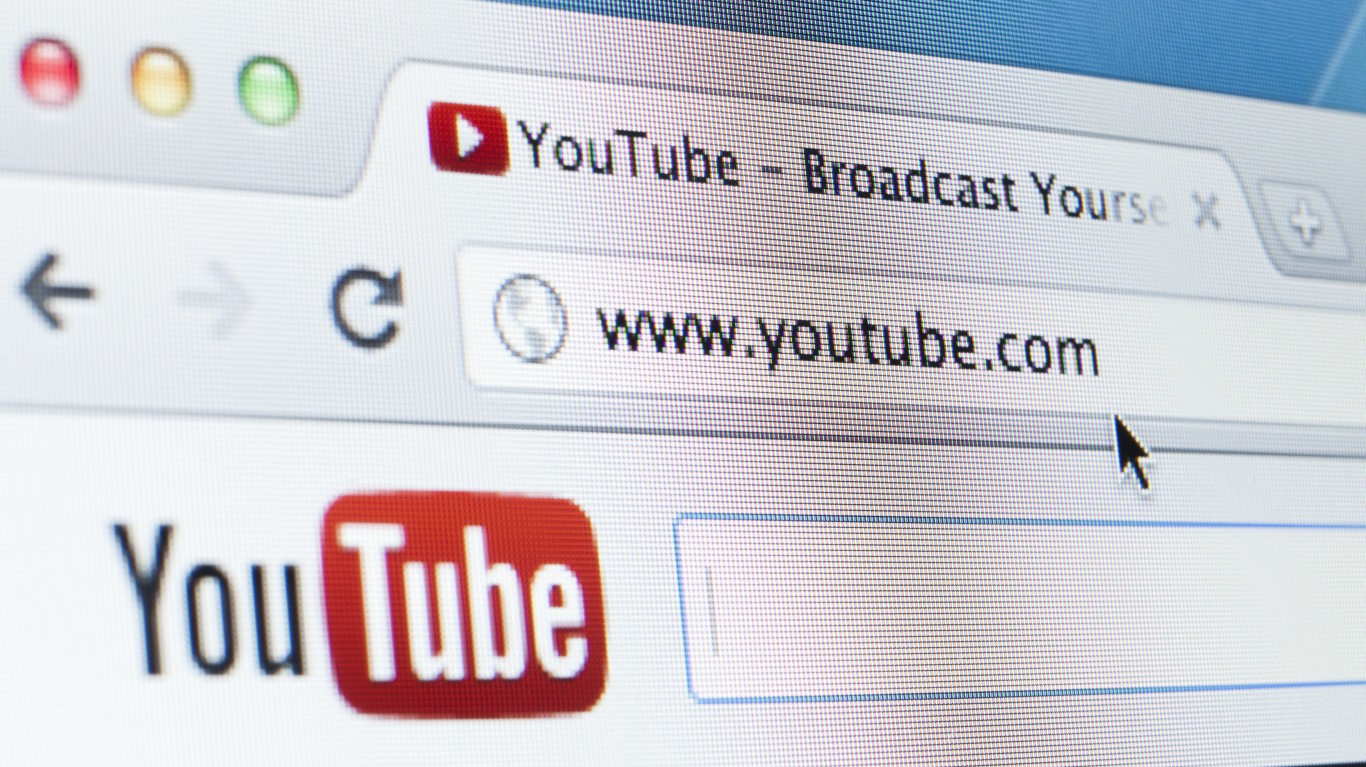
YouTuber
> First used circa: 2006
> Meaning: A frequent user of the video-sharing website YouTube
YouTube was launched in 2005. A year later, the video sharing site was so popular, millions of people had subscribed, earned their own term — YouTubers. The word was officially added to the Oxford English Dictionary in 2016.
[in-text-ad]

Clickbait
> First used circa: 2006
> Meaning: Content the main purpose of which is to encourage people to click on a link
Oxford English Dictionary added “clickbait” in 2016, but the term was invented a decade earlier when it first appeared in a blog post. There is also a lesser-known expression “link bait,” which was created around the same time.

Crowdsourcing
> First used circa: 2006
> Meaning: Obtaining information by enlisting the services of a large number of people
The term crowdsourcing could be traced back to a 2006 article titled “Rise of Crowdsourcing” by Jeff Howe from Wired. He described crowdsourcing as the “new pool of cheap labor,” where everyday people create content and solve problems.
A similar term, “crowdfunding,” was first used in 1997 when a rock band from the U.K. raised money online for a U.S. reunion tour.
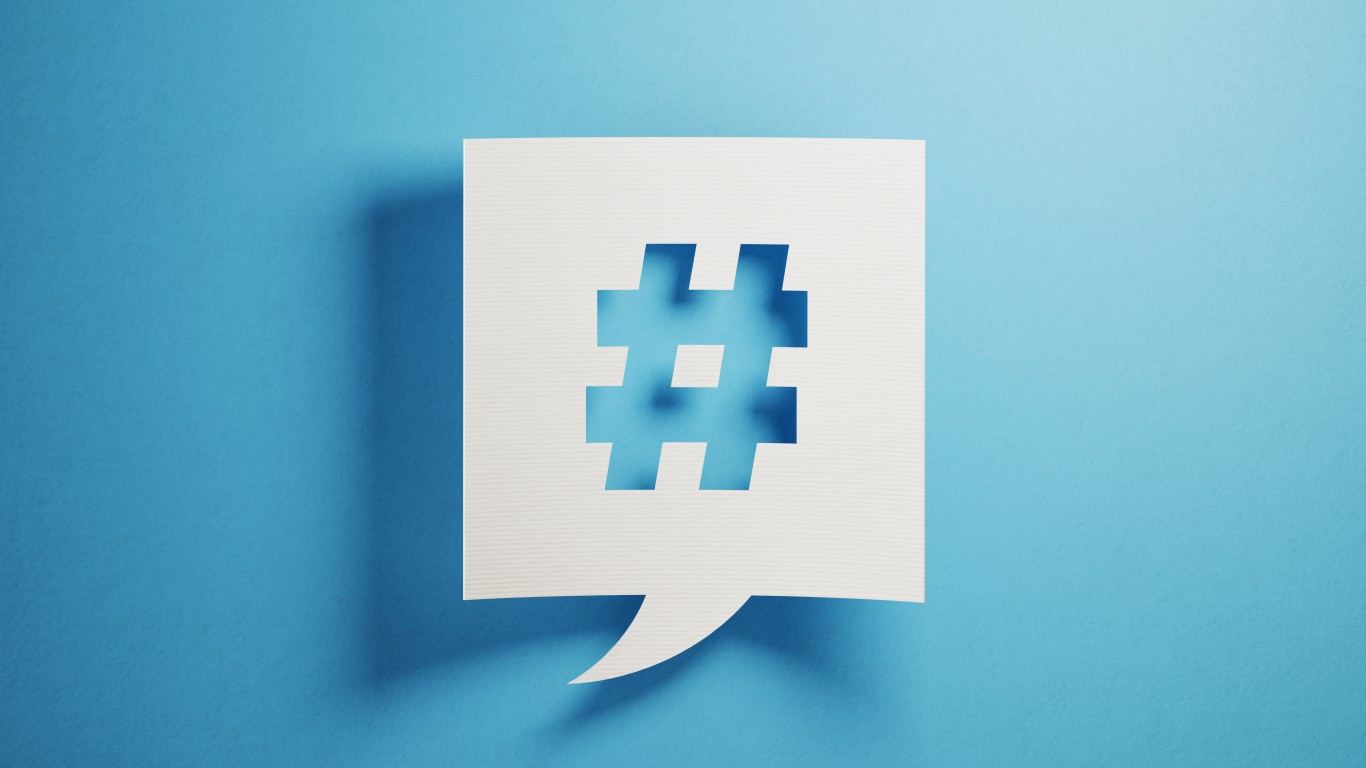
Hashtag
> First used circa: 2007
> Meaning: A word or phrase preceded by a hash sign
As shocking as it may seem, Twitter did not invent the hashtag. The hashtag was first brought to the social media platform in 2007 by a user, Chris Messina. He tweeted: “how do you feel about using # (pound) for groups. As in #barcamp [msg]?”
[in-text-ad-2]
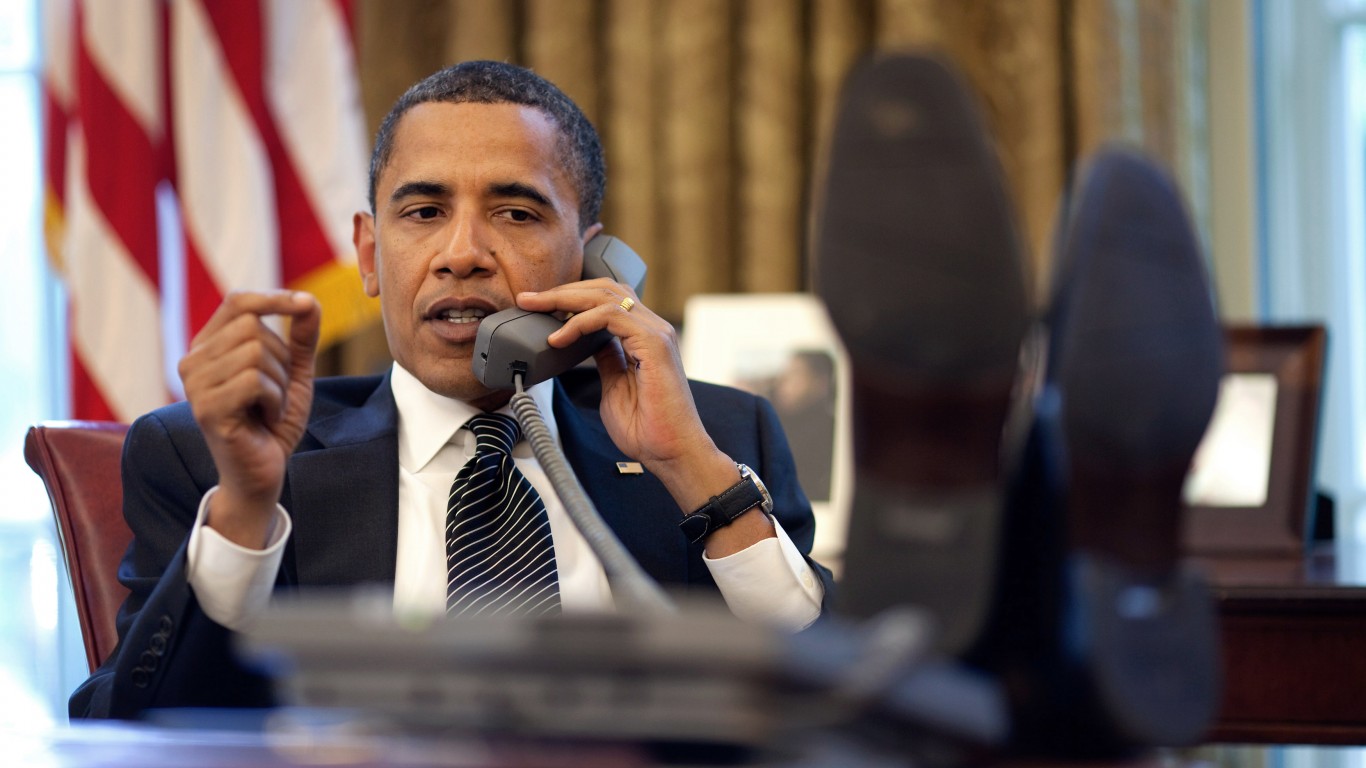
Birther
> First used circa: 2008
> Meaning: A person who claims President Barack Obama was born outside the US
During the 2008 presidential campaign, some people falsely claimed Barack Obama was not a natural-born U.S. citizen even though he was born in Hawaii. The term “birther” was given to people who believed the former president was not born in the U.S. and therefore they believe his presidency was unconstitutional.

Bitcoin
> First used circa: 2008
> Meaning: A type of digital currency
Bitcoin is a digital cryptocurrency created in 2009 by a person or persons going by the name Satoshi Nakamoto, who mined the first-ever bitcoin. The term, however, was first documented in 2008, when the domain bitcoin.org was registered.
[in-text-ad]

Photobomb
> First used circa: 2008
> Meaning: Sneaking into the background of people’s photographs
“Photobomb” was added to Merriam-Webster Dictionary in 2017, but it can be traced back to an entry on Urban Dictionary from 2008. The term is used to describe the moment when someone intentionally but unsolicitedly sneaks into the background of a photo as it’s being taken.

Adulting
> First used circa: 2008
> Meaning: To do the things that adults regularly have to do
“Adulting” is a term popular with millennials. The word was nominated as a candidate for word of the year in 2016 by Oxford Dictionaries but lost to “post-truth.” “Adulting” has been traced back to a tweet from 2008.

Omnishamble
> First used circa: 2009
> Meaning: Something that is totally disorganized and a complete failure
The term combines the word “omni,” which means “all,” with the word “shambles.” The end result — omnishamble — was first used in 2009 by a character in the British popular political satire “The Thick of It.”
[in-text-ad-2]

Bingeable
> First used circa: 2013
> Meaning: A show having multiple episodes or parts that can be watched in rapid succession
With the rise of Netflix and other streaming services, most people are familiar with the term “bingeable” (even though the word was added to the Merriam-Webster Dictionary in 2018). According to the same dictionary, the first known use of “bingeable” was in 2013.
The Average American Has No Idea How Much Money You Can Make Today (Sponsor)
The last few years made people forget how much banks and CD’s can pay. Meanwhile, interest rates have spiked and many can afford to pay you much more, but most are keeping yields low and hoping you won’t notice.
But there is good news. To win qualified customers, some accounts are paying almost 10x the national average! That’s an incredible way to keep your money safe and earn more at the same time. Our top pick for high yield savings accounts includes other benefits as well. You can earn up to 3.80% with a Checking & Savings Account today Sign up and get up to $300 with direct deposit. No account fees. FDIC Insured.
Click here to see how much more you could be earning on your savings today. It takes just a few minutes to open an account to make your money work for you.
Our top pick for high yield savings accounts includes other benefits as well. You can earn up to 4.00% with a Checking & Savings Account from Sofi. Sign up and get up to $300 with direct deposit. No account fees. FDIC Insured.
Thank you for reading! Have some feedback for us?
Contact the 24/7 Wall St. editorial team.
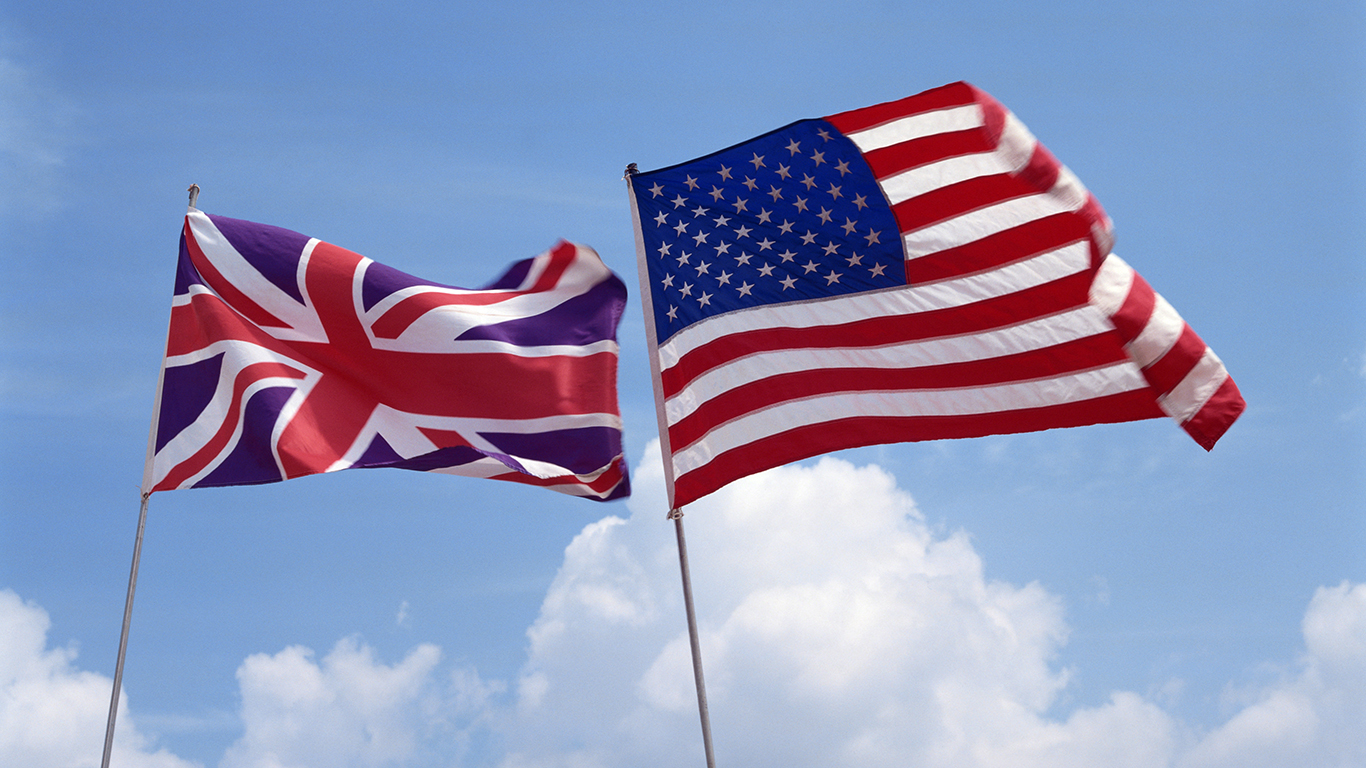 24/7 Wall St.
24/7 Wall St. 24/7 Wall St.
24/7 Wall St. 24/7 Wall St.
24/7 Wall St.